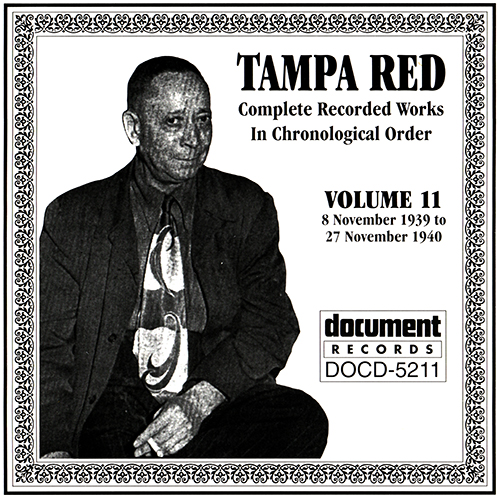Back in the middle of the 1990s, the Vienna-based Document label reissued 71 tasty blues recordings made during the years 1937-1940 by Mississippi native Merline Johnson. Each of the three volumes is superb, and once you've caught her act you might find yourself seeking out the entire set. Volume one covers the first 11 months of her five-year reign as one of Chicago's most prolific prewar blues women. Backed by trumpeter Alfred Bell, clarinet and saxman Bill Owsley, guitarists Lonnie Johnson, Big Bill Broonzy, Willie Bee (James) and George Barnes; pianists Eddie Miller, Horace Malcolm, Blind John Davis and Joshua Altheimer, and drummer Fred Williams, Merline Johnson wrestles and wrangles with the human condition, from domestic relationships and law enforcement to government sponsored work programs, subterranean mining in the deep south, self-medication using hard liquor, and a pact with the devil himself. The first six titles were recorded on May 4, 1937 and issued on the Victor subsidiary Bluebird label. Beginning with "Sold It to the Devil," all of her recordings (issued on the ARC and Vocalion labels) identified her as the "Yas Yas Girl." Right from her opening performance, a fine version of "I'd Rather Drink Muddy Water," this woman's gutsy warmth is difficult to resist. Note that "Pallet on the Floor" is not the familiar traditional tune about sneaking around and dogging one's mate, but a straightforward answer song devised by Merline Johnson herself. "Jelly Bean Blues" was written by Ma Rainey, who recorded it in 1924 with Louis Armstrong and a little group led by Fletcher Henderson. Merline's marvelous cover, recorded on April 7, 1938, is greatly enhanced by the electrically amplified guitar of 16-year-old prodigy George Barnes. arwulf arwulf
Tracklist :
1 New Muddy Water Blues 3:03 (A)
2 He Roars Like A Lion 3:21 (A)
3 I'm Leavin' You 3:07 (A)
4 My Baby Left Me 2:59 (A)
5 Pallet On The Floor 2:49 (A)
6 Mean Mistreatin' Daddy 2:54 (A)
7 Sold It To The Devil 2:59 (B)
8 Grandpa And Grandma 3:12 (B)
9 I'd Rather Be Drinking Muddy Water, No. 2 2:59 (B)
10 Blues Everywhere 2:50 (C)
11 Working On The Project 2:55 (D)
12 I Drink Good Whiskey 3:09 (D)
13 Patrol Wagon Blues 2:47 (D)
14 Got A Man In The 'Bamma Mines 3:04 (D)
15 Jackass For Sale 2:52 (E)
16 You Got To Pay 2:49 (E)
17 My Independent Man 2:47 (F)
18 He May Be Your Man 2:39 (F)
19 New Drinking My Blues Away 2:52 (G)
20 Crime Don't Pay 2:44 (G)
21 Please Come Back To Me (Take 5) 2:34 (H)
22 Love Shows Weakness (Take 4) 2:38 (H)
23 About My Time To Check 2:49 (H)
24 Squeeze Me Tight 2:50 (H)
25 Jelly Bean Blues 2:44 (H)
26 My Man Is Gone 2:38 (H)










































.jpg)
.jpg)




